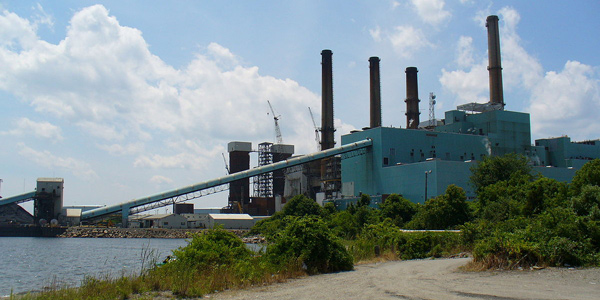By Michael Kuser
The D.C. Circuit Court of Appeals on Tuesday dismissed claims by a labor union that FERC had failed to consider the effects of the closure of the Brayton Point power plant on ISO-NE’s Forward Capacity Auctions 9 and 10 but did suggest the commission should act on a similar claim regarding FCA 8.
Circuit Judge Cornelia Pillard filed the opinion for the three-member panel July 24, dismissing claims by the Utility Workers Union of America Local 464 and its president, Robert Clark, who contended that high clearing prices in FCAs 9 and 10 — resulting from the “illegal” closure of Dynegy’s 1,488-MW Brayton Point station in Massachusetts — increased the cost of their retail electricity service. The union represented workers at the plant, which closed last year.
The petitioners challenged FERC’s orders approving the results of those wholesale auctions as just and reasonable under Section 205 of the Federal Power Act.
“Because no record evidence establishes a causal link between the claimed manipulative closure of Brayton Point and the clearing prices of FCA 9 and FCA 10 that FERC approved, we hold that petitioners lack standing to challenge FERC’s acceptance of those results,” the court said.
The union and others also had challenged Brayton Point’s closure before the commission as an attempt to manipulate the results of FCA 8.
In September 2014, the commission split 2-2 over whether it should reject the results from FCA 8 because of unchecked market power, allowing the 2017/18 auction results to become “effective by operation of law” (ER14-1409). Under the FPA, rates take effect 60 days after they are filed with FERC, absent a commission order to the contrary. (See Court Asked to Force FERC Action on Disputed ISO-NE Capacity Auction.)
In the absence of final FERC action, the court lacked jurisdiction to consider that FCA 8 petition.
Tuesday’s ruling said, “Petitioners’ long-pending request that the full commission revisit Brayton Point’s retirement in the FCA 8 proceedings has yet to be resolved. We trust the commission will give it appropriate consideration without further delay.”
Missing Link
The court suggested the petitioners erred in referring solely to events that occurred in FCA 8, which saw total capacity costs for 2017/18 rise to $3.05 billion (or $7.025/kW-month) — almost double the previous high — as the region’s capacity shifted from an expected surplus to a deficiency of more than 1,000 MW. Prices surged again the following year to $9.55/kW-month for FCA 9 covering 2018/19 but fell to $7.03/kW-month in FCA 10.
“It might seem intuitive, given the laws of supply and demand, that the non-participation of a large plant like Brayton Point would exert some upward pull on auction prices,” the court said. “Again, that logic might suffice in relation to FCA 8, given that Brayton Point retired after the deadline for other suppliers to participate in that auction. But in this context, where petitioners challenge successive Forward Capacity Auctions exclusively by reference to events during FCA 8, the link is missing.”
The court said New England has structured its forward capacity markets to safeguard against undesired effects in one auction rolling through succeeding ones.
The cycle of annual auctions, “conducted three years before generators assume the resulting obligations, are spaced so as to permit the market to account and correct for the events of the previous auction,” the court said.




